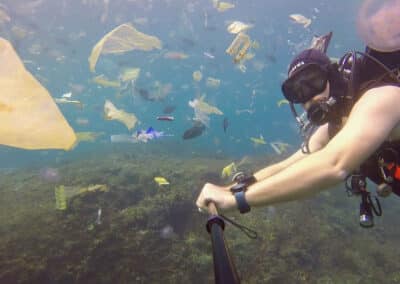Salmon Migration in Hot Columbia River: Part 2
In Which EPA Completely Drops the Ball and Reaches New Heights of Stupidity
by Nina Bell • February 22, 2020 •
In Part 1 of this long-running saga about NWEA’s efforts to provide some cool water relief to salmon navigating the hot waters of the Columbia River, we learned how an NWEA lawsuit led to the National Marine Fisheries Service’s (NMFS) giving EPA three years to come up with a plan to protect and restore the cooler water patches known as “cold-water refuges.”
Now, four years later, I’ll tell you where things stand.
EPA—moving as usual with lightning speed to reflect the urgent state of salmon in the Columbia River Basin—took an extra year to cough up a draft.
But, naturally, it gets worse.
Reluctant as ever to do anything to actually protect real fish in the real river, EPA issued a plan that simply fails to meet the definition of a “plan.” As in not a plan in the literal sense of the word: Steps-To-Take-To-Achieve-A-Goal.
Sure, EPA’s draft so-called plan includes some pretty darn interesting science about how fish use the cold–water refuges in the Columbia River. And EPA made some scary and important predictions about how climate change will continue to warm the Columbia River. But a plan this is not. Even the Trump Administration’s NMFS agreed, saying: “At most, it is a conceptual plan,” which was very generous if you ask me.
EPA’s draft plan is just a list of the very large number of other plans that are busily gathering dust on agency shelves. Perhaps that is unfair, as various entities are presumably planting trees in various places, possibly in response to some of those dusty volumes, but this is a voluntary endeavor akin to putting a band-aid on a gaping wound. What is missing is good old command-and-control regulation. With sirens clapped to the outside of the vehicle!
Because the fact remains that neither Oregon nor Washington regulates agriculture at all to prevent the warming of streams caused by the loss of stream–side trees. And neither Oregon nor Washington’s logging practices are adequate to prevent the removal of existing trees that are necessary to shade streams and prevent erosion that makes them wide and open to warming. This is according to the agencies themselves.
So, for me, the real doozy was EPA’s urging Oregon to use its existing logging practices to protect and restore cold water refuges for fish threatened with extinction. These would be the very same logging practices that EPA, along with the National Oceanic and Atmospheric Administration (NOAA), formally determined in 2015 were not adequate to protect water temperatures. (Another NWEA lawsuit.) I’m sorry to call names, but this seems the very definition of stupid.
Cold-water refuges alone will not save Columbia River salmon and steelhead. Some salmon species—such as the 99 percent of Snake River sockeye that died in 2015 due to hot water in the Columbia—have not learned to rely on refuges because they migrate in the generally cooler months of June and July.
And, the cold–water refuges were never intended to protect salmon when Columbia River temperatures became hotter than 20° C. As EPA demonstrated in this so-called plan, the Columbia is hot and getting hotter. But one thing is for sure, if EPA and the states of Oregon and Washington persist in writing reports when plans are required, and writing plans when regulatory action is required, Columbia River salmon will surely go extinct. On our watch.

